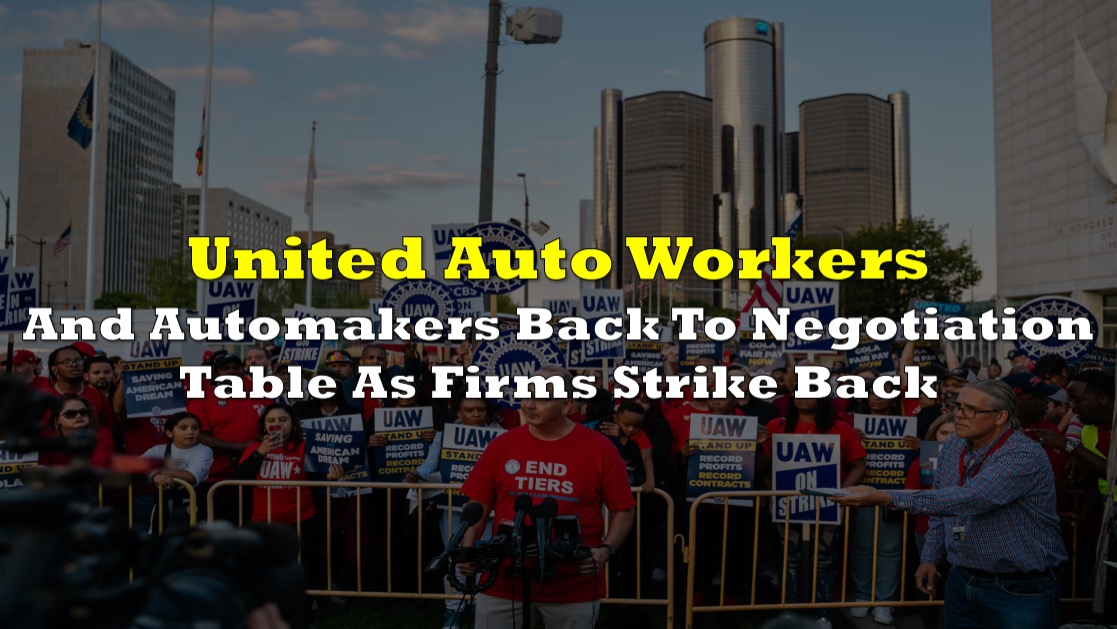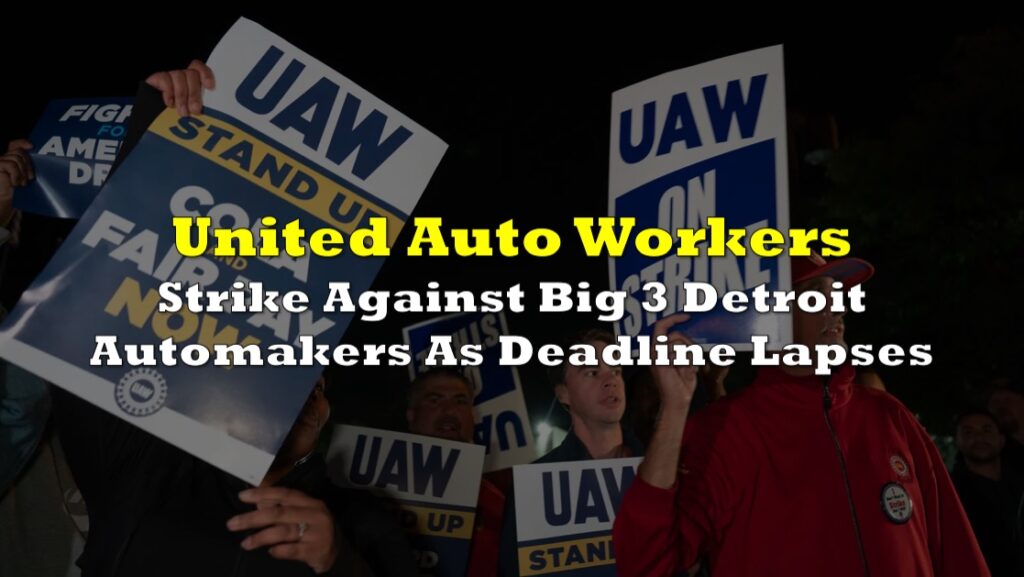The weekend brought the United Auto Workers (UAW) and major automakers back to the negotiation table, but the union reports that progress remains frustratingly slow.
UAW President Shawn Fain expressed his cautious sentiment to MSNBC on Sunday, stating, “Progress is slow, and I don’t really want to say we’re closer.”
The talks resumed on Saturday in the wake of an unprecedented strike against the industry giants known as the Big Three: Ford, General Motors, and Stellantis, the parent company of Chrysler, Jeep, and Ram. Fain confirmed their intent to continue negotiations on Monday.
The strike was triggered last Friday when approximately 13,000 workers across three Midwest plants walked off their jobs after failing to reach an agreement with the automakers on issues like compensation, pensions, and additional benefits. These three plants play a pivotal role in assembling some of the automakers’ most popular models, including the Ford Broncos and Rangers, Jeep Wranglers and Gladiators, and Chevrolet’s Colorado and the GMC Canyon.
Fain expressed disappointment in the automakers, remarking, “It’s a shame that the companies didn’t take our advice and get down to business. They did what they always do, they delayed until the very end, to the last week, and then they want to get serious about this.”
This week, Julie Su, the acting labor secretary, and Gene Sperling, a senior White House adviser, are expected to arrive in Detroit to lend their assistance to the negotiations.
Temporary lay offs; no compensation
Currently, the strike involves less than 9% of the UAW’s membership within the three major companies. However, the situation remains fluid, and additional workers could join the strike at any time, depending on how the negotiations unfold.
For example, around 600 workers at Ford’s Michigan Assembly Plant’s body construction department and south sub-assembly area of integrated stamping were instructed not to report to work on Friday due to the necessity of e-coating for the components they produce. E-coating is typically performed in the facility’s paint department, which was also affected by the strike.
Ford acknowledged the interconnectedness of its production system, warning, “The UAW’s targeted strike strategy will have knock-on effects for facilities that are not directly targeted for a work stoppage.”
General Motors faced a similar predicament as the strike at Wentzville Assembly in Missouri began to negatively impact the rest of its Fairfax assembly plant in Kansas. The company projected that up to 2,000 Fairfax workers would be out of work by early the following week due to a shortage of critical stampings supplied by Wentzville’s stamping operations.
“We are working under an expired agreement at Fairfax. Unfortunately, there are no provisions that allow for company-provided SUB-pay in this circumstance,” General Motors said in a statement.
In cases like these, where a factory is idled due to supply chain disruptions, companies typically provide partial pay to non-striking workers. However, both Ford and General Motors stated that no such compensation would be offered in this instance.
UAW President Shawn Fain contended that the union would ensure affected workers continued to receive income and characterized the temporary layoffs as a strategic maneuver aimed at expediting negotiations. He asserted, “Let’s be clear: if the Big Three decide to lay people off who aren’t on strike, that’s them trying to put the squeeze on our members to settle for less.”
Fain further argued that the automakers possessed the financial means to avoid temporary layoffs, stating, “With their record profits, they don’t have to lay off a single employee. In fact, they could double every autoworker’s pay, not raise car prices, and still rake in billions of dollars.”
Fain, who previously worked as an electrician at Chrysler and held various roles in the union administration before becoming president, campaigned on a more assertive approach to contract negotiations. He frequently highlighted the substantial compensation of the automakers’ CEOs, such as General Motors’ Mary Barra, who received $29 million in compensation last year.
An extended strike could disrupt the availability of new vehicles and drive up prices. It would also have a cascading effect on the automakers’ supply chain and potentially harm other businesses, as workers rely on a $500 per week strike pay from the union.
The auto industry continues to grapple with the ongoing effects of the pandemic, which disrupted production and significantly reduced vehicle supplies. Domestic car inventories currently stand at about a quarter of their levels at the end of 2019.
Information for this briefing was found via NPR and the sources mentioned. The author has no securities or affiliations related to this organization. Not a recommendation to buy or sell. Always do additional research and consult a professional before purchasing a security. The author holds no licenses.











